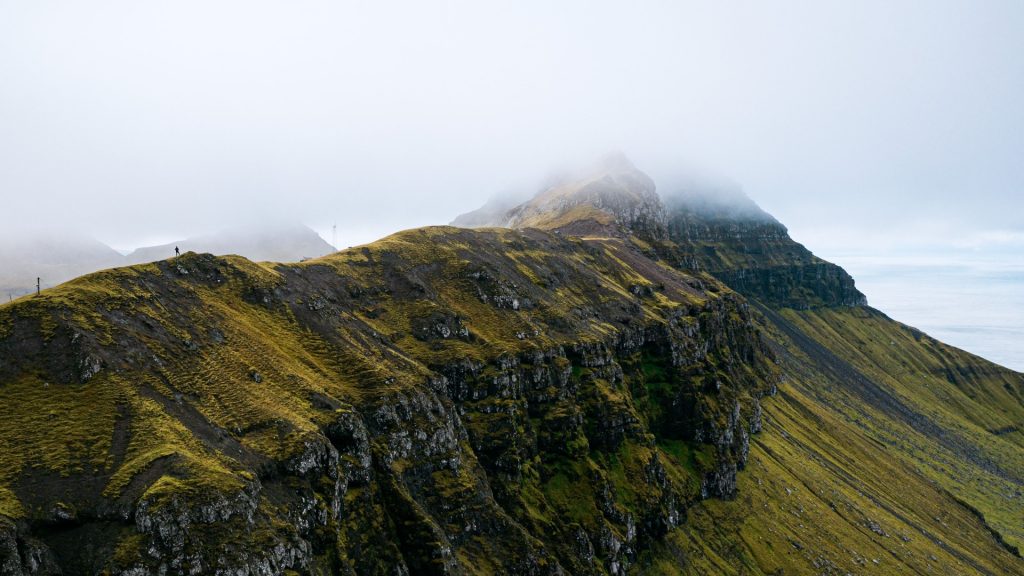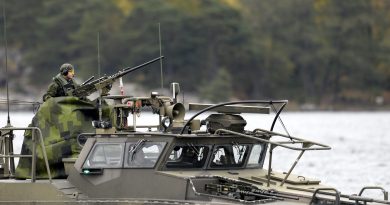Denmark to expand Arctic surveillance with purchase of long-range drones

In the latest move from Denmark to bolster northern security, Copenhagen signed an agreement this month to buy four long-range drones that can survey the Arctic and North Atlantic.
The drones, acquired though NATO’s Support and Procurement Agency, will enhance the Danish Armed Forces’ capability to conduct signals and image intelligence over the remote and strategically sensitive regions Copenhagen is responsible for, Denmark’s defence ministry said in a statement.
The Kingdom of Denmark includes Greenland and the Faroe Islands.
The two regions, because of their remote locations and geographic vulnerability, have been drawing increased attention since Russia’s invasion of Ukraine sharpened Europe’s focus on northern security.
- The warming Arctic is opening new shipping lanes and attracting interest in natural resources, increasing the need for increased environmental monitoring, maritime patrols, and defence
- With Arctic sea routes becoming more navigable, Greenland’s waters are of growing interest to NATO and rival powers
- Pituffik Space Base, the U.S. military’s northernmost installation, which plays a role in missile warning, space surveillance, and Arctic operations, is located in Greenland.
- Vast and sparsely populated, Greenland’s territory is difficult to monitor
While Russia has spent decades investing in Arctic security and infrastructure, European countries have only recently begun investing significantly in northern defence.
“Europe must be able to do more itself, and this is a crucial step in that direction,” Denmark’s Minister of Defence Troels Lund Poulsen, said in a statement.
“With the purchase of four long-range drones, we are strengthening both Danish and European security. At the same time, there is a focus on strengthening our contribution to NATO.”

Danish officials stressed that long range surveillance that can help facilitate rapid reaction time, even in remote areas.
“The drones will play an important role in strengthening our ability to monitor and look after the entire Kingdom and thereby also strengthen NATO’s capabilities in the North Atlantic and the Arctic,” Denmark’s Chief of Defence, General Michael Wiggers Hyldgaard, said.
“Speed is crucial when it comes to building the Danish Armed Forces’ combat power.”

- located at junction of key maritime and air routes connecting Arctic and Europe
- surrounding airspace and sea lanes important for NATO operations
- military planning for radar coverage and surveillance in the area has been resumed by Denmark
- forms part of the “GIUK Gap” (Greenland–Iceland–UK), a naval passage critical to monitoring submarine and ship movement between the Arctic and the Atlantic.
- renewed focus on the North Atlantic from NATO since Russian invasion of Ukraine.
The drones will be funded through Denmark’s Acceleration Fund and recent defence agreements, including provisions specifically targeting Arctic and North Atlantic readiness.
The first two drones were approved in 2021, with the additional two added in 2025 under the Defence Agreement 2024–2033.
The drone deliveries are expected to begin in 2028.
Feedback, story ideas or tips? Contact Eilís at eilis.quinn(at)cbc.ca
Related stories from around the North:
Canada: More soldiers, more money. Canada’s top soldier extols benefits of spending boost, CBC News
Denmark: Danish general says he is not losing sleep over US plans for Greenland, Reuters
Greenland: Europeans step up Arctic diplomacy amid U.S. and global pressure, Eye on the Arctic
Finland: Finland hails plan for allies to join NATO land forces in North, The Independent Barents Observer
Iceland: Europe’s Von der Leyen strengthens Arctic security ties with Iceland during visit, Eye on the Arctic
Norway: Deterrence Norway joins NATO’s Forward Land Forces in Lapland, The Independent Barents Observer
Russia: Russian pilots learn to target long-range drones in Barents Sea combat drill, The Associated Press
Sweden: Nordic-Baltic region joins forces around Sweden’s CV90, The Independent Barents Observer
United States: White House releases U.S. Arctic strategy implementation plan, Eye on the Arctic



